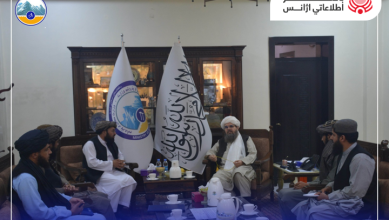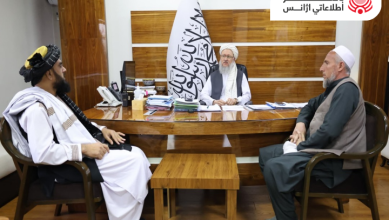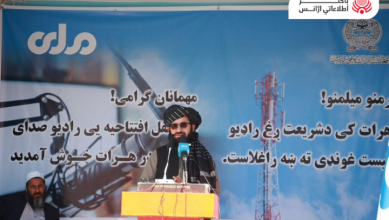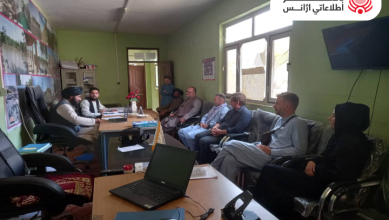
Sunday February 9, 2014
Kabul (BNA) Ghubar Khater, a collection of Mawlana Abul Kalam Azad’s letters which is translated to Persian by the country’s poet and writer Mohammad Afsar Rahbeen, opened yesterday in Kabul with the participation of Minister of Information and Culture Dr. Sayed Makhdoom Raheen and a number of the country’s cultural figures.
According to BNA correspondent, in a ceremony held on this occasion in Indian Embassy in Kabul with participation of Indian ambassador to Kabul, MoIC Deputy of Cultural Affairs Sayed Musadiq Khalili, Senator Akhundzada, University teachers, MoFA representative Abdul Qahar Abid and a number of the country’s poets, writers and cultural figures, Minister of Information and Culture Dr. Sayed Makhdoom Raheen spoke and said, “Mawlana Abul Kalam Azad, who was not only a writer but also one of the biggest freedom fighters, literals and philosophers of India, worked towards freedom and launched huge cultural struggles against Great Britain’s invasion, went to prison and suffered a lot of pains. Meanwhile, he was top in knowledge, wisdom and acquainted with modern civilization and new era, having deep information in Islamic and national culture, so he became a huge figure becoming spirit to new generation and kept deep cultural relations with predecessors jointly honored by people of Afghanistan and India.” “Mawlana was an example of resistance and bravery and highly struggled against the invasion of Great Britain in India,” Dr. Raheen added.
In the ceremony, Mohammad Afsar Rahbeen, translating the book to Dari spoke and said Indian history would be incomplete without the name of Abul Kalam Azad.
“Mawlana was a person getting freedom of India, Mawlana has huge achievements in the history of India,” he added. According to Mohammad Afsar Rahbeen, Ghubar Khater is a collection of 24 letters written by Mawlana Azad in prison. He said he spent three months translating the book whose 100 pages were about glossaries, adding he also wrote about the prison where he was imprisoned.
Following, Indian ambassador to Kabul Amr Sina spoke and said Mawlana was a political, writer and poet and struggling along with Gandhi for freedom of India, adding Mawlana was very interested to Afghanistan and his grandfather had moved from Herat to India.
He considered Mawlana’s book as valuable, saying Mawlana worked hard for unity of Muslims and Indians besides his cultural and literal activities. “Mawlana has never gone to school. He learned everything at home and was top in Holy Quran’s interpretation, asking that the collection should be translated to Pashto too,” the Indian ambassador to Kabul said. In the ceremony, Chief of newspapers Shamsul Haq Aryanfar, Gul Noor Bahman and Abdul Qahar Abid also delivered speeches. This was the fourth artifact translated by Rahbeen and it is determined that Ghalib’s memoirs would be ready for publication.




